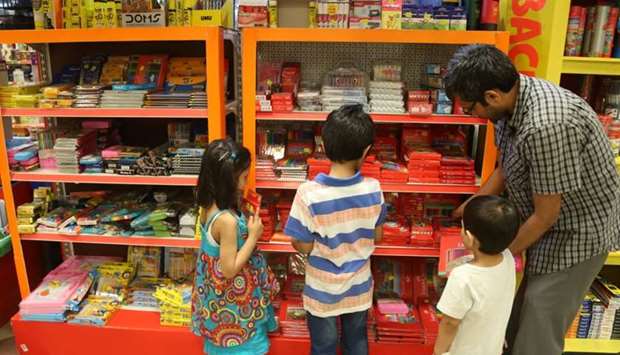Qatar’s private school market has the potential to be $2.4bn by 2023 against $1.4bn in 2016 owing to rising school-aged population, enrolment and tuition fees as well as shift towards private schools, according to a study.
"There is strong demand for private schools in Qatar, across all types of curricula and fee ranges," a study the Boston Consulting Group (BCG) said.
It used to be that expatriates were not allowed to attend public schools, but the government has had to relax that policy because of the shortage in private schools, it said, adding there are also opportunities for public-private partnerships given Qatar’s transformation of its public schools into independent schools.
On the school aged population, BCG said there will be an increase in the number of families with children aged 3 to 17 years, but this growth will be "somewhat" slower than in the past given the current diplomatic crisis and its effect on the expatriate population.
Qatar is at present embroiled in a diplomatic crisis with its neighbours, which has led to an uncertain political and economic climate. "This situation could alter expatriate demographics," it said.
The study said the private school enrolment rate for kindergarten is expected to increase from 55% to 80%, and enrolment in other grade levels, which is already high, will continue to hold steady.
The number of students enrolled in private schools is expected to grow, from 62% to 70%, as demand for private schools still exceeds the supply, it said, highlighting that tuition fees are expected to increase in line with inflation.
In the GCC, BCG said, the private education market, which educates about 30% of K-12 students, is expected to double over the next five years to $26bn as evolving demographics, government interventions, and regulatory issues, are reshaping the complex private education market within each jurisdiction in the region.
"The K-12 private education market in the GCC countries has become a magnet for investors and school operators, and rightly so," BCG said, adding while all of these markets are growing, investors must fine-tune their strategies to account for the shifting circumstances within each country.
While the GCC markets offer excellent investment opportunities, the private education sector is not without its challenges, it said, adding the educational landscape is still quite fragmented in the GCC region with no dominant players, which makes it attractive for large-scale operators but making it difficult for new entrants to break in.
The GCC banking sector makes it challenging for the private school investors to access capital for financing. Moreover, the number of qualified teachers is limited, teacher turnover is high, and competition for expatriate teachers is fierce, BCG said.


